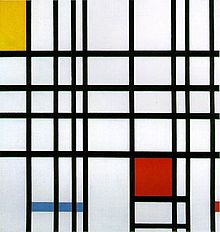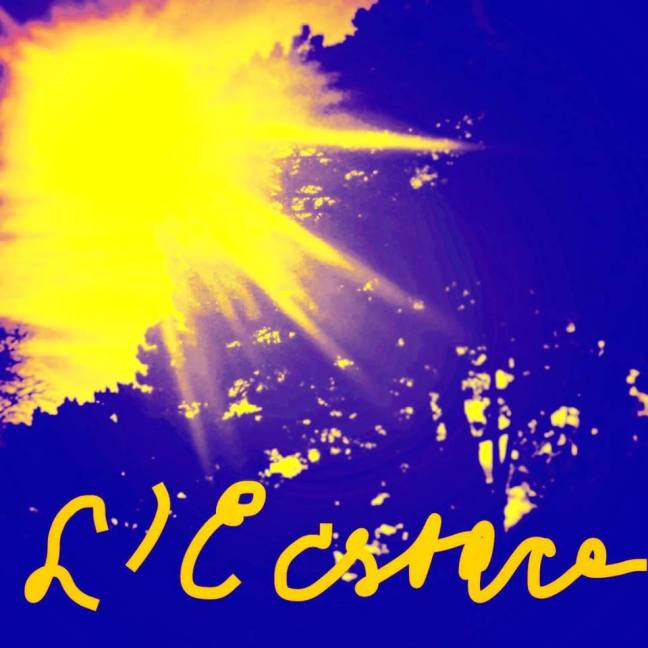Plato’s late dialogue, the Theatetus explores the question, “what does it mean to know something?”. This concern is not new within the Platonic dialogues. In particular, the Phaedo, Meno, and Republic stand out as discussions of knowledge that anticipate in many ways the more explicit treatment given in the Theatetus. I believe that, despite what some recent criticism suggests, due consideration of the matter will show that what is common to all these is not merely the question of knowledge in general, but the problem of separation or “chorismos”: the classic problem of how to arrive at a knowledge of unchanging truth on the basis of ever changing experience.
Despite the widespread recognition of separation as a common thread of the middle dialogues, the third section of the Theatetus, in which Plato gives his fullest account of knowledge, is often presented as a discussion that falls outside this continuity. This is even more surprising in view of the fact that the theme of the third section, the so called “dream theory”, explores a possible definition of knowledge which is also explored in the last attempt at defining virtue in the Meno: the hypothesis that knowledge is not merely a true opinion but one with a logically consistent account or “logos”.
The reasons why this approach has not been taken are not far to seek. Theatetus, Socrates’ partner in the dialogue, introduces the dream theory as something he remembers having heard “someone” suggest (T 201C); Socrates, in turn, says he has heard the theory in a “dream” that matches the one Theatetus describes (one involving knowledge as true opinion with a consistent account). (T 201 c-d) These details about attribution complicate an attempt to find a source for the theory that follows, (to be discussed briefly further on) but some have proposed Antisthenes as the author. Whatever the origin of the theory, I would like to contend that the discussion that follows is certainly in part Plato’s way of exploring his own problem of separation. On another front, some have argued that separation cannot be a theme in the Theatetus (see for example Waterfield’s ‘essay’) especially since Plato has abandoned the theory of Forms in the Theatetus. There is ample evidence to suggest that separation, as well as the theory of Forms do make an appearance in the Theatetus, this time not as doctrines Plato is espousing but as ones he is examining. I believe that once this move is made and the dream theory is read in continuity with the earlier dialogues, a new pathway to thinking about the problem of separation opens up. Moreover, I believe the most consistent reading of the dialogue will yield the result that Plato has not solved the problem, but merely opened it up with greater clarity than elsewhere in his corpus as a difficulty to be solved.

This new pathway will be introduced by a brief sketch of the genesis of the separation problem in the Meno and Phaedo, followed by a discussion of the specific way in which I believe the problem of separation arises in the dream theory. Once the link is drawn between the earlier and later dialogues in this way it will be possible to see just how the discussion of the separation problem in the Theatetus is innovative.
1
Perhaps the best starting point to catch a glimpse of the problem of separation in its genesis in the early dialogues is Socrates’ discussion of his youthful hopes for philosophical insight. Socrates, according to his autobiographical account in the Phaedo had, at first, been interested in the exploration of the natural world. Specifically, at (96A) he lists three questions he sought to answer: why a thing comes to be, why it perishes, and the cause of its being or existence. The tale Socrates tells can be looked upon as a trans-migration from seeking knowledge in relation to the first two types of question to a concern with discovering in the cause of existence the true basis of explanation of the former two. This type of cause is, importantly, not to be understood as a cause of a thing’s coming-to-be, but rather as the cause of its Being: something that stands above the sorts of causes that are concerned with the generation and destruction of things. Socrates calls this cause the “cause of causes” and describes it as that cause without which the causes of generation and destruction would not be causes. This cause can clearly be identified with Aristotle’s final cause. In the Phaedo it is related to “mind” and described as that which orders or arranges with a view to some end or good order (harmony may also be read into the context here) which is pre-established as that at which the processes of generation and destruction continually aim.

To understand such an end as a cause is to have that which explains those processes themselves. Socrates sought the knowledge of such a cause in Anaxagoras’ discussion of “Mind”, but found him making “no use of Mind” but instead gaving materialistic explanations for natural processes, using “air”, “ether” and “water” (basic elements) as his basis for understanding the natural world. Socrates great insight, according to the story, might be said to be the discovery of the notion of an ultimate explanation that stands above those concerned with the causes of coming-to-be and passing away.
Here one can see the formulation of a distinction that would reach a level of thematic importance for Plato in the Republic: one between things characterized as involving a process of becoming (the natural world which is continually in flux) and other objects of understanding that are characterized, by contrast, as simply “Being”. In the Phaedo, Socrates marks the distinction as one between the visible and the invisible or purely intelligible. (see P 79D) These latter may be discovered, according to Socrates’ autobiographical sketch, by turning away from sights and sounds and turning toward an engagement with words and/or discussion (logoi) instead. Once this step is taken, true knowledge is conceived as involving a consistent account (logos) of what one is trying to explain. Moreover, this type of knowledge will correspond to a realizable end that stands to the flux of particulars as an ordered and ordering principle of arrangement and harmony that, in turn, explains the observable processes of change.
These points may be taken as a sketch of a theory that can be called Socrates’ ideal, if not precisely his dream, of complete knowledge that was later championed by Plato especially in the Middle dialogues: the Meno, Phaedo, and the Republic. It will be a kind of knowledge that relates ideal models of reality to the fluctuating reality of the everyday world and can promise true insight into that world as if one understood the divine “Mind” ordering nature itself. It involves the ideal of a “stairway” that one can climb to reach a more “divine” perspective beginning from the more (inevitably) quotidian one that Socrates and Plato took to be the concern of non-philosophical thought.
2
As was hinted at, a basic element of this ideal theory is a “separation” between visibles and intelligibles. In order to contemplate the sort of cause that is the ordering cause of things, one must seek a unified idea that stands above and apart from the particulars it is meant to explain. Now, it would seem that one could always gather a unified idea from particulars by abstracting some feature from them, such as when one might abstract the notion of three-sidedness from many instances of triangle. In this instance we would have a purely synthetic approach to ideas; one that relies upon epagoge or induction. Yet, as is familiar from Euclidean geometry, the notion of one material triangle that would correspond to every particular is impossible: in order to truly abstract from particulars, one must arrive at an idea.
The primary reason Plato gives for a type of ontological separation corresponding to that found in euclidean geometry arises in the Phaedo, and involves thinking about the nature of opposites: firstly, in the context of the natural world, and next, in a logical context as dialectical opposites. According to Socrates’ reasoning, in the natural world, a thing always comes to be from its opposite. For example, heat comes into being out of what was formerly cold. However, logical opposition never has this feature. Logical opposites always simply are what they are. They are, as Plato sometimes says, ‘pure’, in the sense that they are free from that which they are not. It is very tempting to think of dialectical opposition in concrete terms for the purpose of illustration: ‘pure’ white, ideal white, because it is precisely what is not not-white, can have no intermixture within itself of what is not what it is. One may think of these “realities” as if they were on a spectrum of being: on one end one can imagine pure white or the Form of white, while on the other end would be placed the not-white (its opposite). In between, would be an area of intermediacy (a point that will be of central importance in what follows). Two problems might be seen to arise in the natural world in connection with any attempt to identify a particular instance of white with its Form: in the first instance, there is the problem of identifying “white itself” with something known to the senses: what appears purely white at one time may appear different at different times to different people. This is a problem of separation between appearances and reality. Secondly, there is the matter of flux: according to the criterion enforced by dialectical scrutiny, what is purely white or white itself must be eternally so: its basic idea must not be mutable or subject to change, and as a consequence, it can never become its opposite. (Phaedo 103b). One encounters these two bases of separation in the dialogues again and again.

What remains to be seen next in this connection is the way in which these elements of separation line up with what appears in the dream theory of the Theateus. As was already mentioned in the introduction, my intention is to show that there is a continuity between the early and middle dialogues and the dream theory that appears in the Theatetus. So let us now turn to the Theatetus itself.
3
What has given interpreters the greatest trouble in approaching the Theatetus is how to understand the elements Plato speaks of at 201e-202c. As was said in the introduction, one basic problem has been the question of the attribution of the dream. However interesting points of similarity may be drawn between the elements of the dream theory and Plato’s own understanding of the relationship between forms and particulars. If we look to the text itself, the problem the interpreter faces may be one of underdetermination. For example, even if Socrates did hear the theory somewhere else, does that necessarily exclude the possibility that Plato could have incorporated it into his own? It seems that if some insight can be taken from such an approach it is worth exploring.
If we look to the description Socrates gives of the elements, they do not appear to be precisely the same as anything in Plato’s cosmos. However, they do appear to fit very well with the understanding of particulars he develops in the Republic, and with the theme of separation mentioned earlier. The way in which Being is, for Plato something simple and abstract was discussed above. It will now be seen that there are parallels between Plato’s middle dialogue Forms and the elements dicussed here; but what is of ultimate importance are the differences. There is a sense in which the elements of the Theatetus and Forms mirror one another; but there are important ways in which the elements fall short of the Forms.
The elements appear to have a very minimal sort of being. Indeed, from Plato’s description of them, it is difficult to see what being or non-being they have at all. The important features mentioned are:
- Nothing can be attributed to them, including absolute being or non-being, or even phrases such as ‘itself’, ‘that’, ‘each’, ‘independent’, ‘this’, or anything else.
- They are attributes that ‘run around’ and get applied to everything, while they are different from what they are applied to.
- Since they only have names, it is impossible to give a rational account (logos) of them.
- They are that of which everything is made.
- Their names can be woven together to produce accounts that are intelligible even if the names by themselves are not (since an account is a weaving together of names).
- The physical elements can be woven together in the same way as their names.
The differences between the elements here and the Forms of the middle dialogues can now be drawn. While each has a kind of simplicity, the description of elements goes further: nothing whatsoever can be attributed to them, whereas the Forms are usually described using terms such as “itself”, and “pure”. Moreover, while the Forms explicitly have an absolute being, the elements here cannot be said either to be or not to be. For all these reasons they are unknowable, whereas the Forms are described as the “intelligibles”.
Taking these points together, one kind of being found in Plato’s ontological schema applies especially well to the elements as presented: the intermediate being discussed above. Intermediate being has to be understood within a framework of logical opposition if it is to be understood at all. In fact, the whole set of attributes is hardly intelligible at all unless it is understood within this framework. Ryle, for example, sought to understand the elements as logical simples; but this explanation seems to ignore the heavy ontological as well as logical slant of Socrates’ characterization. It is clear from the points above that more than logical atoms are in view: there is indeed an attempt to describe a certain kind of being, and the way in which it may or may not be understood. Moreover, these beings do not appear to fit entirely well with the characterization of them as material simples. They certainly may be since they are “that of which everything is made”. Yet the text is underdetermined as to the sense in which they make things up. They are described as “attributes”: this opens the possibility that they are such things as would correspond to “red”, “green”, “5 feet tall”, etc. that make up all things, rather than the materialists’ atoms. I believe that these considerations point to the sense of intermediate being discussed above as a possible way to understand all the points discussed above without making any definite commitments to the nature of the elements beyond the description given.
Now, here are some parallels that may be drawn between the characterisitics of the elements above and the “intermediates” in view:
- From the perspective of dialectical opposition the intermediates are between being and non-being. Hence they neither are nor are not. If they lack these basic attributes, then it cannot be said that they possess any other characteristics (again, from the perspective of dialectical opposition, according to which a thing is either P or ~P, and P is defined as what is ~~P). (See Phaedo 103b)
- The elements, like the intermediates, are things that fall short of a definite account, since they fall short of the kind of being the Forms themselves have. (Phaedo 72b-77a: note the way in which the discussion proceeds from Anaxagoras’ mixed cosmos of of things coming to be to the discussion of the Equal itself, and how this parallels Socrates’ discussion of Anaxagoras and his hopes for knowledge in the autobiographical section 96a and following).
- The intermediates possess being (again from a dialectical perspective) only to the extent that they participate in the “reality” of the Forms themselves. For example, snow is cold by participating in “cold”; but snow may become hot, in which case it loses its being as snow. The name “cold” does not always apply to it, but is in a sense a borrowed name from that which is always “cold”. Hence, just as above, an intermediate which is cold can be said to have its being by participation, and moreover its name by participation. It has just this name to give it its reality, and does not even possess this reality absolutely, but only by participation. (see especially Phaedo 103e)
- The intermediates have the character of attributes such as “hot” and “cold” that go into and out of bodies. Hence, they could quite easily be said to be that of which everything is made in a sense that is both ontic (a thing really is hot or cold) and logical (a thing is referred as hot or cold when it has the proper characteristics). (Phaedo 103c-d)
- The same result follows with respect to the weaving together of names to form logoi (accounts, explanations, arguments, definitions). In order to have a true account of something, it must be created from names that point to the reality of the thing in question. Indeed, it seems necessary that this should be the case if definitions can be drawn from division (such as those in the Sophist), and if it is to be possible to rise to the intelligible from the visible at all. (see Phaedo 76d-e, where Socrates explicitly makes the latter point)

It remains now to show that not only something corresponding to the intermediates, but also something corresponding to the Forms is present in Plato’s discussion. It is important to explore this aspect of separation since the presence of anything corresponding to the Forms in the Theatetus has been contested. (See Waterfield’s “Essay” pp. 239-246) What I want to argue here is not that Plato is maintaining a theory of Forms corresponding to the middle dialogues, but, rather, that he is using the framework in the dream theory in order to evaluate the point of view of the middle dialogues.
The similarities to a separation framework are, in fact, ubiquitous. At 187a, for example, Socrates mentions a function of the mind involved solely with things themselves. Here there is not only a continuation of the theme of the separation of the visible and intelligible in terms of being, but also in terms of psychological faculties. At 190b, he uses the framework of dialectical opposition invoked above where he speaks of the impossibility of imagining that what is beautiful is ugly, or that what is immoral is moral, or again that what is odd is even. Here is the basis for separation precisely on the lines on the absolute Being of the Forms: a kind of being not subject to change into its opposite. Furthermore, where Socrates proposes an intepretation of a syllable in the dream theory as a single identity without parts (Phaedo 204a (to be explained more fully further on)) this description corresponds best to the simplicity of the Forms. When the characteristics of the ‘elements’ (as above) are compared these self-identical syllables, the result again invokes the classic separation framework of the middle dialogues. Lastly, at Theatetus 205d, Socrates describes the same syllables as ‘single in form’. It does not seem that either separation or the presence of Forms in the Theatetus can be dismissed out of hand.
Separation has been explored and developed as a theme that links the early and middle dialogues to the Theatetus. The precise link that has been proposed is that between intermediate being and the elements on the one hand and an interpretation of the syllables (to be discussed further in what follows) as Forms on the other. It remains to gather in fruits of this labor over the comparison, and to show just what new insight can be gleaned from this reading. It will be shown that what the Theatetus advances over the earlier dialogues is further discussion of separation as a problem, rather than merely a feature of a complete middle-platonic theory of knowledge. This occurs in the Theatetus as a problem for knowledge itself; one that is again familiar from the earlier dialogues, but explored in the later dialogues in greater depth. The theory of knowledge presented in the middle dialogues is presented there as a viable epistemological schema. However, just as the ideal emerged so did the questions that troubled it. It will be the concern of the next section to explore these.

4
Much of what Plato writes concerning knowledge in the early and middle dialogues is concerned with developing criteria for knowledge. For example, Socrates will often ask whether in the process of defining something, his interlocutor is giving an instance or example of what is to be defined or a definition that covers the whole of the cases concerned. It is clear throughout these dialogues that there is a difference between the kinds of things that count as instances and those that count as unified ideas or accounts of instances. These differences are specified and clarified in order to give us an idea of what we are seeking when we seek knowledge; when we are attempting, in other words, to grasp the ultimate Forms of things. Such clarifications yield an understanding of separation as a matter of difference between visibles and intelligibles.
Separation does not arise in these dialogues as a structural problem to be overcome except in the case where the problem of the Meno is introduced. Here it is asked, in effect, how one can know that one has arrived at one’s destination in seeking knowledge without prior knowledge of what one is seeking. It seems that it cannot, and that one can only know that one has arrived at knowledge to the extent that one had prior knowledge of what one was seeking. This necessary fore-knowledge could be present as the framework of a question that allows it to be answered effectively; or, it could be information contained in the premisses of an argument that allows one to proceed to a conclusion; but for the Socrates of the middle dialogues, who has the problem of arriving at a knowledge of the Forms in view, what is fore-known is something innate that needs to be accessed by a process of inquiry. According to the theory, this knowledge was had by the soul before it entered the body.
Recollection theory functions as a way to unite the visibles and intelligibles of Plato’s epistemology. If the Forms are so abstract as to be only identical to themselves (auto kath’ hauto), the question must arise as to how we get to know them if at all. It would seem an unfortunate thing to develop a theory of knowledge only to find that knowledge within the theory was something unattainable. This may explain the extravagance of the recollection theory of the Phaedo, with its questionable reliance upon the immortality of the soul to make it possible. Recollection-knowledge arises as a matter of a sudden realization of a similarity, not among things in the visible world, but between things in the visible world and those in the intelligible world. Such recollection requires innate knowledge. This is a picture of radical separation, one that invokes the classical two-worlds view of the Phaedo. What the Theatetus does most of all is challenge the basis for this type of separation.

The challenge is issued precisely through considering the terms of the proposed definition of knowledge. Where Theatetus proposes that knowledge be definable not only as a true belief, but also as one with an explanation or logically consistent account, the terms of knowledge found in the “road to Larissa” analogy of the Meno are implicitly invoked. The “road to Larissa” analogy is similar to the “problem of the Meno” (i.e. the problem of prior knowledge) discussed above, and differs only in that it supposes that if one is to be an ideal guide to a destination (as in the Meno problem) one must not arrive by accident, but with something that allows for repeated success: an account or explanation of how to get there (a logos). Such an explanation is something an ideal guide should possess beforehand. Thus, the framework for discussing prior knowledge is invoked along with the third definition of knowledge under discussion in the Theatetus.
The basic premisses of the dream theory are (a) that the criterion for knowledge will be a rational account (logos); hence, where no rational account can be given no knowledge is possible; and (b) that the individual primary elements (discussed above) of which everything is made cannot be explained, while the complexes that are composed out of them can. This sets the stage for the test Socrates gives for the theory, where he takes letters to stand in the place of elements and syllables to stand as their complexes. The grounds for separation are already present here, but the example does not yet include an analogue to the Forms. This enters where two possibilities for understanding the syllables are invoked. Understood (i) as a composite, the syllable SO (the first syllable of Socrates’ name) is a kind of set comprising the individual letters as parts; understood (ii) as a single unified idea, the Syllable has to thought of purely in terms of its idea, as something that comes into being only when the parts are brought together in the right way, and even then, as something greater than the sum of those parts, since it has attributes that the parts themselves to not possess individually. It is in the latter case that an analogue to the Forms is put forward and the theory of Forms as presented in the middle dialogues is put to the test.
The first understanding of a syllable is perhaps the one more congenial to common sense. Surely, it might be thought, a syllable can be understood as a composite of its letters. But what motivates Socrates to (ii) is the realization that if knowledge is to be founded along the lines of (i), the elements themselves must be knowable; but according to the criterion proposed for knowledge in the dream theory section this will be impossible since they are (as above) simple entities without composition, whether in a logical or in an ontic sense. The second possibility invoked in (ii) provides a different sort of foundation for knowledge: one found in a “unified idea” that has no foundation in the elements other than the possibility of its arising, and no actuality apart from its own being. The difficulty with such a theory is that is supposes that such a unified idea cannot have parts. Socrates might be seen to be driven to propose this view as an alternative by the terms of bivalence: if (i) takes a syllable to have parts and draws its major consequences from this, then (ii) must be opposed to (i) if it is to be a distinct alternative and not collapse back into (i). Moreover, it should now be noticed the problem of separation is finally put forward as a problem for a theory of knowledge. In the middle dialogues it was solved by the theory of recollection. Finally, the text suggests that the two approaches are incompatible on the level of analysis and synthesis. The model (ii) of a ‘one’ and ‘unified’ idea cannot be analyzed into any elements if it is truly sui-generis, self-identical, and without parts; on the other hand, if, as in the earlier dialogues synthesis (as in case i) is to be a part of the way in which we arrive at knowledge, some leap beyond the parts themselves must be required in order to arrive at knowledge: one must, the model suggests be able to catch a glimpse of something not present in the parts themselves; yet this is indeed a problem if, according to the definition proposed, we cannot know anything of the parts themselves.
Socrates’ claim in the Theatetus is that (ii) with its notion of a “whole” with a unified idea cannot but collapse back into (i) with its leading notion of a totality of parts. This does pose a problem for separation as an initial outcome of the dialogue up to T-205, but rather may be seen to bring to light the way in which the whole dilemma collapses. The dialogue suggests that wholes and totalities, must, at the end of the day, be inter-definable in some sense. One cannot claim to have parts of anything if one maintains the notion of a whole in sense (ii) as a criterion for knowledge. Undeniably, there are such things as wholes, such as notes that make up music scores and numbers that make up larger numbers. It seems unreasonable to think that these do not contribute to an understanding of what they compose, whether that composite is understood as a totality after (i) or a whole according to (ii).
Thus, a path to knowledge is finally put forward at T 206ff. Interestingly, it is a path to knowledge that was first mentioned in the Phaedo. (see P 96b) His proposal is that we should turn our attention back to the order in which we do in fact learn things. In the order of learning letters or musical notes, one had first to recognize and distinguish each letter and note before one could put them together into words or compositions. Moreover, there is an new insistence, in keeping with the doctrine of the Phaedo, that, based upon these examples, one can indeed know the elements or our experience and that one can reliably draw inferences from them. (see T 206b)
A question that arises is whether this new path is meant in earnest as a solution to the dilemma discussed above, or whether it is merely meant as a counter-example. The latter seems to be more the case, due especially to the fact that Socrates’ next move is to discuss possible senses of logos as a way of maintaining the definition of knowledge as true belief with an account. In other words, the upshot of the whole discussion seems to be that the counterexample is meant to defeat the whole premiss of the dilemma: in actual practice, we do in fact proceed from elements we in some sense know, to something we learn as a result. This defeats the main assumption of the dilemma, that while we may know the composite, we cannot know the elements themselves.
5
We must finally turn to the question of what may be drawn from this discussion of knowledge. Plato does not himself draw any conclusions, and there is a temptation to think that the whole dialogue has a merely heuristic function; that is, that it is meant to help the reader draw conclusions more than to present them. That conclusion would certainly not be foreign to the Platonic-Socratic sprit. However, it has been proposed that there is both a continuity and a shift between Plato’s ideal of knowledge and the scrutiny it receives in the Theatetus. It will now be brought out more explicitly what Plato seems to have learned, or perhaps, at least what he reveals about his own thought in this self-critical dialogue. What seems needed to discover this shift in self reflection is the adoption of a broad perspective. I believe that the difficulty Plato reveals in the Theatetus for his earlier theory is a problem of two methods that each seem to work independently but not in conjunction: the methods of analysis and synthesis on the one hand, and the method of dialectical opposition on the other.
I would prefer to think of the problem that arises for Plato in terms of a visual metaphor involving horizontal planes and vertical lines. I believe an ideal image for the perspective I have in mind would be a Mondrian painting.


The horizontal lines would represent Plato’s dialetical researches into logical opposition (the opposition between P and ~P discussed above), while the vertical ones would relate to the method of synthesis or the relating together of the aspects of one’s experience, or epagoge (roughly, induction by abstraction in Plato’s case). The places where the lines intersect would correspond to points of understanding in the process of developing a complete body of knowledge; points where experience (synthesis) meets logic (dialectical opposition). Analysis or division would enter as a method whereby one could draw out the consequences of knowledge one already possesses, perhaps in the way one does when working out a crossword puzzle.
The methods are meant to work in harmony in the early and middle dialogues to create a perfect science; one in which “things themselves” such as the ideas of the “equal itself”, or of “triangle itself” would, while abstract and separate, be places where one can “stand” as a knower in the stream of fluctuating appearances. It was perhaps Plato’s assumption that, given the doctrine of recollection, one could be assured in taking such stands. The goal of the entire ideal seems to be nothing less than the discovery not merely of a kind of knowledge that explains one’s experience, but one which, if it passes the test of dialectical opposition, stands to explain any experience.
The difficulty Plato seems to have noticed is that even if, supposing one has been given an insight that appears to be a matter of recollection, the two methods do not quite work in harmony. (ii) above illustrates this well. Suppose that one has a unified idea of a syllable, one that is self-identical so that it has no parts and has nothing in common with anything else: how, then, does one know through analysis that it bears a necessary relationship to experience. In the matter of letters and syllables, this point might seem overly contentious at first or perhaps like nothing more than a philosopher’s debate. But if we take the analogy seriously, there is something to be gained from it. One must perhaps remember that the analogy is meant to have a broader application, but consider what the analogy suggests: is there any ultimate reason why the syllable should sound a certain way based upon the way the letters sound? One may press the point further: given that the Greeks understood many letters to be ‘soundless’ (e.g. mutes, sibilants, nasals, and continuants) one could argue that from the Greek perspective, this type of argument has even greater relevance. To state the same point in a different way, can anything necessarily be deduced from the sound of the syllable to that of the letters? Knowing the sound of the letters, like that of the syllables seems to be something one must at some point just know; one must be taught the sounds one identifies with the letters and syllables.
This point brings us back, of course, to the theory of recollection. The theory of recollection solves the above problem by positing a pre-existing knowledge that lies within us. But as the analogy suggests, no experience can lead us infallibly to such knowledge and such knowledge has, as the analogy again suggests, an air of irresolution about it. Thus, what the Theatetus reveals are the interstices, the gaps in the horizontal and vertical crossings that ultimately prevent the structure from being ultimately strong or sound. But, moreover, the lines and planes analogy may be carried into the world of engineering to yield the perspective that while a microstructure may not be free of interstitial defects, it may yet be a strong and useful one for most purposes. Moreover, if this was Plato’s conclusion regarding his earlier theory of knowledge, he can be taken to have anticipated to some extent later epistemological insights that had to await the passing of the middle ages and the waning of the hope of subsequent centuries for truly objective knowledge. Finally, this perspective reveals just where that hope might be kept alive: in the sort of synthetic exploration and discovery found in Plato’s counterexample to his own theory. Whether this method can yield ulitmately definitive oppositions, is, of course, an open question.
Bibliography:
Plato’s Theatetus translated with an essay by Robin Waterfield (Penguin: 1988).
Corford, F.M., Plato’s Theory of Knowledge, the Theatetus and the Sophist (Dover 2003). Originally published in 1957 by the Liberal Arts Press.
Plato Five Dialogues, trans. G.M.A. Grube (Hackett: 1981).
Plato’s Republic, trans. G.M.A. Grube (Hackett: 1974).
The Theaetetus of Plato with a revised text and English notes, trans. Lewis Campbell (Arno press: 1973). Contains Greek text and valuable notes.















